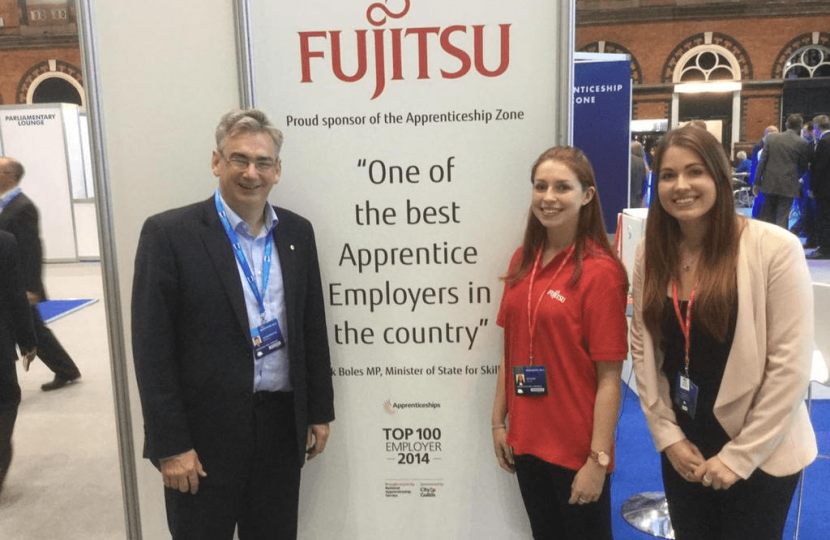
This week Philip Hammond, the Chancellor, has presented the Budget to MPs in the House of Commons.
It’s one of the biggest events in the Westminster calendar and an important opportunity for the Government to set out its priorities for the year ahead.
Budgets were once veiled in secrecy, but Hammond gave us a pretty clear idea of what he was going to announce.
After a year championing apprenticeships across the borough, I’m very pleased to see education front and centre.
In particular the major shake-up of post-16 technical education, which has for too long been treated as a poor relation to more traditional academic qualifications, is very exciting.
Instead of the current confusing mass of 13,000 qualifications there will be 15 well-defined courses, each of which will involve 50 per cent more time learning – that’s over 900 hours teaching a year. This will be backed up by £500 million in new funding.
Amongst the 15 subjects pupils will be able to choose are engineering and manufacturing, business and administration, construction, social care and more. These courses will also be renamed ‘T-Levels’, to make clear their equality with traditional A-Levels – a long-overdue and very welcome step.
Here in the West Midlands we’re at the forefront of this skills revolution. We’ve got the National College for High Speed Rail in Birmingham and, closer to home, the WMG Academy for Young Engineers in the north of Solihull borough.
These new technical qualifications will help train up the skilled workers needed for a modern economy, especially when need to make a success of Brexit, for which Hammond is preparing carefully.
I’m delighted that my concerns about the economic impact of the vote have so far not been borne out, but it’s prudent to prepare in case the worst happens.
That’s why I think it’s wise for the Chancellor to save the benefits of better-than-predicted economic growth in a ‘Brexit war chest’, rather than spend it on giveaways.
Dealing with the deficit, preparing for Brexit, and investing in the schools we need to build a modern economy: this is a Budget that tackles the most important issues facing Britain today.